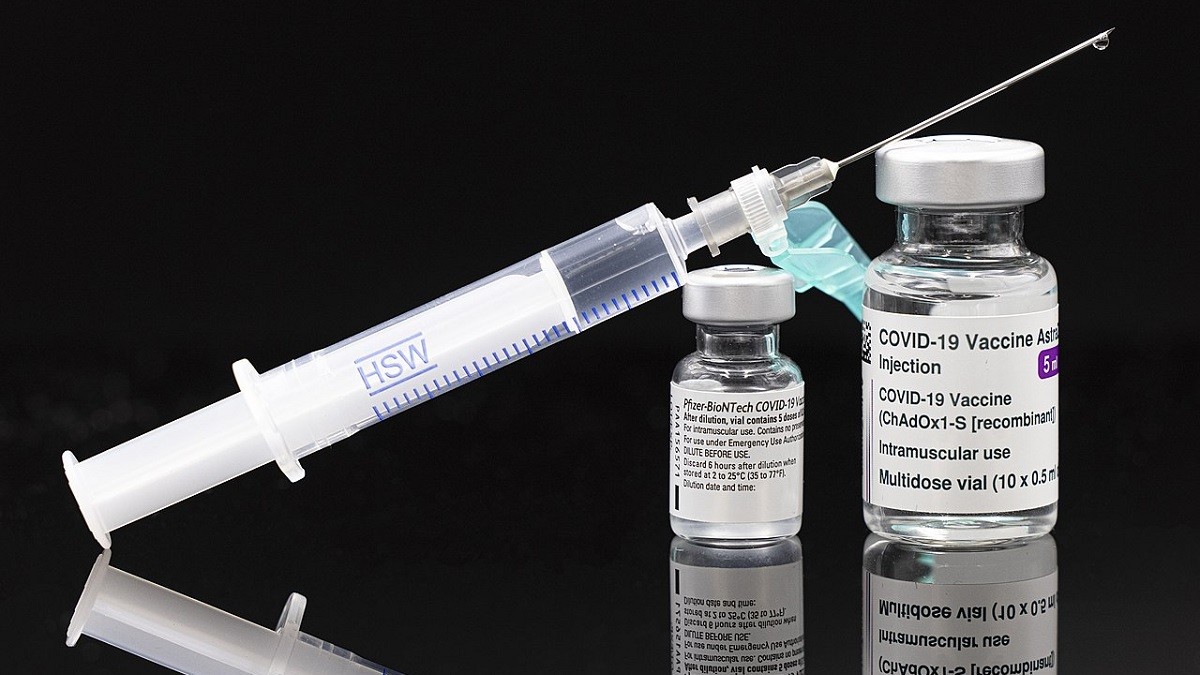Health
Study: Mixing AstraZeneca and Pfizer vaccines generates strong immune response

- Oxford Vaccine Group’s Com-Cov vaccine trial revealed that individuals who received a dose of the AstraZeneca vaccine followed by a dose of Pfizer four weeks later exhibited a stronger immune response.
- Mixing the two vaccines generated higher antibodies than receiving two AstraZeneca doses.
- The results could provide flexibility in vaccine roll-out and administration, especially in locations “experiencing supply difficulties.”
A study from the Oxford University has found that individuals who received a dose of the AstraZeneca vaccine followed by a dose of Pfizer four weeks later exhibited a stronger immune response.
The AstraZeneca vaccine, more commonly used in the U.K., was developed by Oxford. Three other COVID-19 vaccines are more commonly administered in the U.S.: Johnson & Johnson, Moderna, and Pfizer-BioNTech.
Oxford Vaccine Group’s Com-Cov vaccine trial involved 830 volunteers, 50 years or older, in the U.K. The study tested four different vaccine combinations.
The study found that receiving AstraZeneca followed by Pfizer generated higher antibodies and T-cell responses. Additionally, receiving the two different vaccines, regardless of order, generated higher antibodies than receiving two AstraZeneca doses.
Of the vaccine combinations, two Pfizer doses generated the highest antibody response.
Chief investigator Matthew Snape said that the results could help provide “flexibility in the U.K. and global vaccine roll-out.”
However, he noted that the study only tested a four-week interval between doses, compared to the usual eight to 12-week interval for the AstraZeneca vaccine.
“This longer interval is known to result in a better immune response,” Snape, an associate professor in pediatrics and vaccinology at the University of Oxford, explained. “The results for a 12-week interval will be available shortly.”
Deputy Chief Medical Officer Professor Jonathan Van-Tam stated, “Our non-mixed (homologous) vaccination program has already saved tens of thousands of lives across the U.K. but we now know mixing doses could provide us with even greater flexibility for a booster program, while also supporting countries who have further to go with their vaccine rollouts and who may be experiencing supply difficulties.”
Back in May, a press release of the Com-Cov study‘s preliminary results stated that mixing vaccines resulted in more frequent mild to moderate reactions, but these reactions were short-lived.
Another study testing Moderna and Novavax vaccines aims to “demonstrate that mixing is not substantially worse than not mixing – and will compare the immune system responses to the gold-standard responses reported in previous clinical trials of each vaccine,” according to the press release.
Source: CBS News
